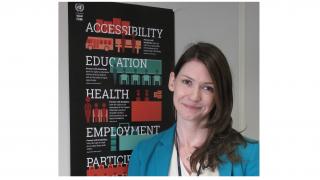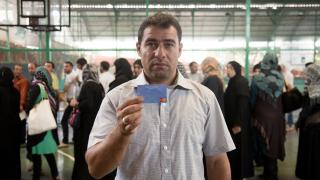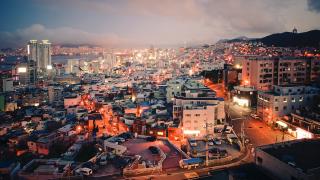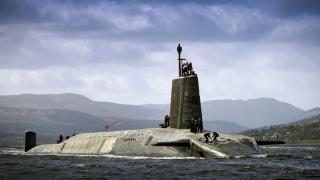Around 2,000 migrants and refugees have died so far in 2015, crossing the Mediterranean Sea in a bid to reach the coasts of Europe. This represents a 20-fold increase on the same period last year and, according to UNHCR, this is mainly a refugee crisis.
European states - the very founders of the 1951 UN Refugee Convention - have been reluctant to take action. Just as Italy and Greece claimed a lack of resources to accommodate migrants and askedothers to share responsibility, Hungary approved a law to construct a border fence, while France has been busy keeping the migrants out of its borders.
The EU – 2012 Nobel Peace Prize winner for promoting “peace and reconciliation, democracy and human rights” – is thus having a rough time trying to agree on a solution. As Kate Allen of Amnesty International UK put it, the EU’s “response to one of the worst refugee crises since World War Two has been appalling".
The EU should never have questioned its responsibility to the migrants who risk their lives at sea, refugees or not. With a population of 503 million people, the unsustainability of a 200,000 migrant intake across 28 countries sounds far-fetched. It is especially embarrassing when compared to countries such as Turkey, which hosted 1.59 of the world’s 19.5 million refugees in 2014.
By prioritising sovereignty and national security over human rights, this kind of politics turns the latter into privileges to be bestowed at the Government’s pleasure. To quote UN Special Rapporteur François Crépeau: “Allowing people to die at Europe’s borders just because of their administrative status is a complete disregard for the value of human life”.
The discourse around the illegality of these migrant flows plays to the trend of populist far-right political parties. Yet, it also raises the question as to whether it should rather be seen as the result of an incoherent body of existing EU policies.
The arrivals have precipitated a rhetoric of law enforcement and punishments against smugglers. Whilst this approach might help tackling illegal human trafficking, it fails to address the complexity of the phenomenon of migration and the need for far more comprehensive national and regional immigration policies.
This attitude also neglects questions of human rights. Thousands of migrants crossing the Mediterranean are forced to flee due to human rights abuses in their country of origin or situations of extreme poverty. They are forced to give their life savings to smugglers for a journey where they face the risk of drowning or being burned alive.
These refugees would not choose to cross the Mediterranean in extreme, often deadly, conditions if they could peacefully live in their countries of origins. And their status would not necessarily be deemed “illegal” if the EU promptly complied with their right to seek asylum.
In 2014, 219,000 people came to Europe via the Mediterranean Sea, whilst 137,000 have done so in the period from January to June 2015. Over 60 percent, including thousands of unaccompanied children, came from Somalia, Syria and Afghanistan, which are lacerated by war and the threat of extremist groups, or were fleeing from Eritrea’s terribly repressive regime. Political asylum and protection by the international community should not be negotiable.
European migration policies which have to be implemented immediately to tackle the sudden humanitarian emergency must also be sustainable in the long run, especially for economic migrants. It should go without saying that migrants from countries such as Gambia, Nigeria, Mali and Senegal, who hope to live in safer societies and to have more economic opportunities, should not be left to die in the sea either.
Migration flows are first and foremost movements of people. Therefore, the importance of human rights, both on a national and international level, should never be neglected.
Roberta Giammaria is currently volunteering as an Outreach Intern at UNA-UK

























